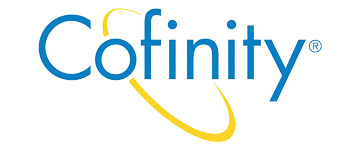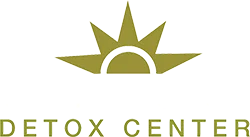Comprehensive Drug Rehab in Chattanooga, TN: Your Path to Recovery
Drug addiction affects millions of Americans each year, causing profound challenges not only for those struggling with substance abuse but also for their families and communities. With the ongoing opioid epidemic and the widespread misuse of various substances, the need for high-quality treatment facilities is more critical than ever. At Chattanooga Detox Center, we are committed to providing exceptional substance abuse treatment at our drug rehab in Chattanooga, TN, helping individuals overcome addiction and reclaim their lives.
What to Expect During Our Drug Rehab Program
When you join our rehab program, you can anticipate receiving compassionate, professional care from our dedicated team of addiction specialists. Our therapists and counselors are devoted to guiding you through the recovery process, empowering you to achieve your goals and envision a brighter future. We offer a holistic approach to treatment that includes:
- Personalized Treatment Plans: Tailored to meet your unique needs and circumstances.
- Comprehensive Care: Incorporating nutritional guidance, exercise programs, and life skills training.
- Aftercare Support: Assisting you in connecting with mental health professionals, sober living facilities, and outpatient programs to ensure a seamless transition post-treatment.
Our array of services and therapeutic options allows you to create an individualized recovery plan that addresses all aspects of your well-being.
Program Highlights
Our drug rehab program offers a wide range of features designed to support you throughout your recovery journey:
- 24/7 Support: Around-the-clock care from trained addiction specialists.
- Medical Assistance: Management of withdrawal symptoms and medical conditions related to addiction.
- Medication Management: Access to psychiatric care and medication oversight.
- Extensive Group Programming: Over 35 hours of group therapy sessions each week.
- Individual Counseling: Weekly one-on-one sessions with a master’s level therapist.
- Nutritious Meals: Healthy, in-house meals provided throughout inpatient treatment.
- Wellness Programs: Nutritional support and exercise plans to promote physical health.
- Holistic Recovery: Emphasis on spiritual wellness and whole-self recovery.
- Customized Planning: Development of personalized treatment strategies.
- Family Involvement: Encouraging family participation to strengthen support systems.
- Dual Diagnosis Treatment: Addressing underlying mental health disorders alongside addiction.
Types of Drug Addictions We Treat
Substance abuse can involve a variety of drugs, each with different effects and risks. Our facility is equipped to treat several categories of drug addictions, including:
Stimulants
Stimulant drugs increase alertness, energy, and attention by activating the central nervous system (CNS). Common stimulants include:
- Prescription Medications: Adderall, Ritalin.
- Illicit Drugs: Cocaine, crack cocaine, methamphetamine.
Depressants
Depressants slow down CNS activity, leading to relaxation and reduced inhibitions. They can cause slowed breathing, lowered heart rate, and feelings of euphoria. Examples are:
- Prescription Medications: Benzodiazepines like Xanax and Valium, barbiturates.
- Alcohol: One of the most commonly abused depressants.
Opioids
Opioids are primarily prescribed for pain relief but have a high potential for addiction. Misuse can occur when individuals seek the euphoric effects rather than pain management. Common opioids include:
- Prescription Medications: OxyContin, morphine, fentanyl.
- Illicit Drugs: Heroin.
Hallucinogens and Dissociatives
These substances alter perception, leading to hallucinations or a distorted sense of reality. They are often used recreationally at events like concerts or festivals. Examples include:
- Hallucinogens: LSD (acid), psilocybin mushrooms (magic mushrooms), mescaline.
- Dissociatives: Ketamine, PCP, dextromethorphan (DXM).
Cannabis
Cannabis, also known as marijuana, has both depressant and hallucinogenic properties due to its psychoactive compounds. While legalized in many states for medicinal or recreational use, misuse can lead to issues such as decreased motivation and cognitive impairments.
Call (423) 455-9887
Insurance Can Cover Up To 100%
We Accept Most Insurance. Please Note We Are Not Affiliated or Endorsed By Insurance Companies.
Recognizing the Signs and Symptoms of Drug Addiction
Understanding the indicators of drug addiction is crucial for seeking timely help. Common signs and symptoms include:
- Changes in Sleep Patterns: Sleeping excessively or experiencing insomnia.
- Extreme Energy Fluctuations: Periods of hyperactivity followed by fatigue or “crashes.”
- Social Withdrawal: Isolating from friends and family.
- Loss of Interest: Disengagement from hobbies and activities once enjoyed.
- Decline in Performance: Poor academic or work performance.
- Physical Changes: Unexplained weight loss or gain.
- Mood Swings: Increased irritability, agitation, or mood instability.
- Neglected Appearance: Poor personal hygiene or a disheveled look.
- Financial Problems: Unexplained spending or financial distress due to substance use.
- Increased Tolerance: Needing more of the drug to achieve the same effect.
- Risky Behaviors: Engaging in unsafe activities while under the influence.
- Self-Medication: Using drugs to cope with mental health issues.
If you or someone you know is experiencing these symptoms, it may be indicative of a substance use disorder requiring professional intervention.
How Do I Know If I Need Drug Rehab?
Deciding to seek help is a significant and courageous step. You may need drug rehab if:
- Substance Use Interferes with Daily Life: Difficulty maintaining responsibilities at work, school, or home.
- Physical Health Is Affected: Experiencing health issues related to drug use.
- Attempts to Quit Have Failed: Unable to stop using despite wanting to quit.
- Withdrawal Symptoms Occur: Experiencing physical or psychological symptoms when not using the substance.
- Cravings Are Intense: Persistent desire or urges to use the drug.
- Relationships Are Strained: Conflicts with loved ones due to substance use.
- Legal or Financial Troubles: Facing legal issues or financial hardship as a result of addiction.
Our drug rehab in Chattanooga, TN, provides the support and resources needed to overcome addiction and rebuild your life.
The Importance of Professional Treatment
Trying to quit drugs on your own can be challenging and, in some cases, dangerous. Withdrawal symptoms can be uncomfortable and may lead to relapse if not properly managed. Professional treatment offers:
- Medical Supervision: Safe management of withdrawal symptoms during detoxification.
- Structured Environment: A controlled setting free from triggers and access to substances.
- Comprehensive Care: Addressing physical, emotional, and psychological aspects of addiction.
- Support Network: Access to counselors, therapists, and peers who understand your journey.
How Is Drug Addiction Treated in Chattanooga?
At Chattanooga Detox Center, we employ a multi-faceted approach to addiction treatment:
Detoxification
The first step involves safely eliminating substances from your body under medical supervision. Our detox program ensures that you are comfortable and supported throughout the withdrawal process.
Residential Treatment
Following detox, many clients continue with our inpatient rehab program. This phase focuses on:
- Identifying Underlying Causes: Exploring factors that contribute to addiction.
- Managing Triggers: Developing strategies to cope with cravings and avoid relapse.
- Therapeutic Interventions: Participating in individual and group therapy sessions.
Holistic Care
We believe in treating the whole person by addressing all dimensions of health and wellness:
- Mental Health Support: Offering therapy for co-occurring mental health disorders.
- Holistic Therapies: Incorporating activities like music therapy and mindfulness practices.
- Nutritional Guidance: Promoting healthy eating habits to support physical recovery.
- Exercise Programs: Encouraging physical activity to enhance well-being.
- Family Involvement: Engaging loved ones in the recovery process to strengthen relationships.
Aftercare Planning
Preparing for life after rehab is crucial for maintaining long-term sobriety. We assist you in:
- Connecting with Resources: Linking you to outpatient programs, support groups, and sober living options.
- Developing Relapse Prevention Plans: Equipping you with tools to navigate challenges post-treatment.
- Continued Support: Providing ongoing encouragement and guidance as you transition back into daily life.








 Gupta Brings Over A Decade Of Experience To Chattanooga Detox Center. Dr. Gupta Specializes In Treating Adults With Substance Use And Psychiatric Disorders. His Extensive Clinical Experience Includes Medication-Assisted Treatment, Medical-Surgical Consultation And Psychiatric Stabilization In Acute Settings. Dr. Gupta Completed His General Psychiatry Residency At The University Of Connecticut Followed By A Fellowship In Addiction Psychiatry At Emory University. He Is Double Board-Certified In Both Of These Specialties. Dr. Gupta Is Passionate About His Work In Substance Abuse And Is An Advocate For Reducing The Stigma Surrounding Mental Illness.
Gupta Brings Over A Decade Of Experience To Chattanooga Detox Center. Dr. Gupta Specializes In Treating Adults With Substance Use And Psychiatric Disorders. His Extensive Clinical Experience Includes Medication-Assisted Treatment, Medical-Surgical Consultation And Psychiatric Stabilization In Acute Settings. Dr. Gupta Completed His General Psychiatry Residency At The University Of Connecticut Followed By A Fellowship In Addiction Psychiatry At Emory University. He Is Double Board-Certified In Both Of These Specialties. Dr. Gupta Is Passionate About His Work In Substance Abuse And Is An Advocate For Reducing The Stigma Surrounding Mental Illness. President Alec Pagliarulo has spent his entire career working in the addiction and mental health community. He has worked in various roles, including benefits analyst, admissions coordinator, and business development specialist. Alec is passionate about providing the best possible care to individuals struggling to overcome addiction. He aims to create positive recovery experiences, including programs rooted in integrity that pave a path for long-term growth.
President Alec Pagliarulo has spent his entire career working in the addiction and mental health community. He has worked in various roles, including benefits analyst, admissions coordinator, and business development specialist. Alec is passionate about providing the best possible care to individuals struggling to overcome addiction. He aims to create positive recovery experiences, including programs rooted in integrity that pave a path for long-term growth. Carter is a successful real estate and private equity investor. Prior to founding Chattanooga Detox Center, Carter worked in insurance brokerage in New York City and as a real estate private equity acquisitions specialist in Atlanta. He completed his undergraduate degree at Washington & Lee University and has an MBA from the UNC Keenan-Flagler Business School.
Carter is a successful real estate and private equity investor. Prior to founding Chattanooga Detox Center, Carter worked in insurance brokerage in New York City and as a real estate private equity acquisitions specialist in Atlanta. He completed his undergraduate degree at Washington & Lee University and has an MBA from the UNC Keenan-Flagler Business School.